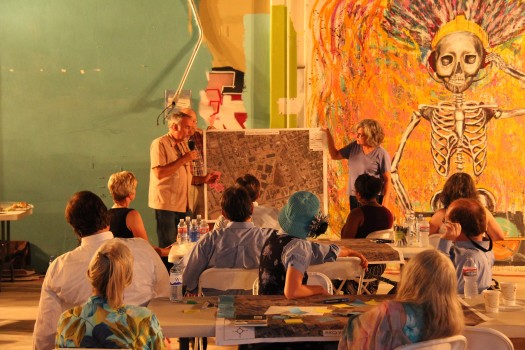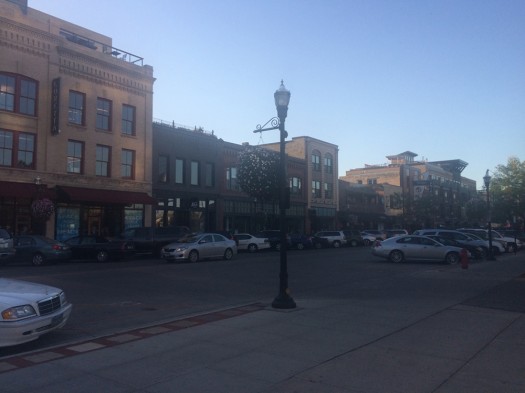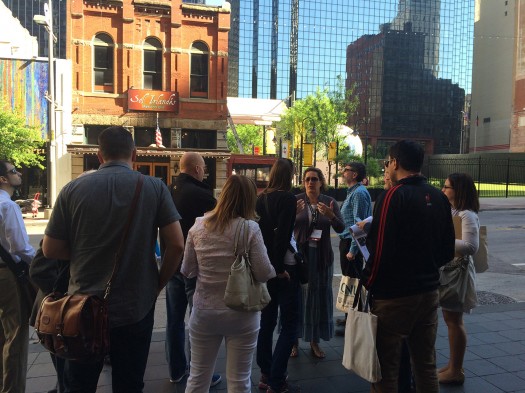Public Engagement
Charrette: A Social Innovation Lab
When you think social innovation, you might think micro loans in developing countries, or hand-ups to help people in from the fringes here at home. Or a wide range of ways to build social capital or how charitable institutions backstop community with philanthropy. But for those of you who are working in the city planning…
Read MorePorchfest: Your Guide to a DIY Community-Building Good Time
Five or so years ago, Better Cities and Towns publisher Rob Steuteville told me about Porchfest, a yearly community event taking root in his Ithaca, New York, neighborhood. The idea is simple: For one afternoon, porches throughout the community become makeshift stages, yards become venues, and people from within and beyond wander the streets, chatting,…
Read MoreCoding for Character: Doing away with the zoned out nature of our cities
Having lived in six 100-year-old homes over the last 25 years, autumn always makes me carefully consider what it takes to keep these beautiful elders operational and up-to-date. As we were going through the process of winterizing this year, I am reminded of our recent attempt to modernize by making one small addition that would…
Read MoreKuujjuaq: Heart of the Arctic Day 1
Friday, July 17, 2015 Launching Adventure Canada’s Heart of the Arctic expedition, we left Ottawa at dawn by charter flight, landing in Kuujjuaq before lunch. One glance out the window of the plane reinforces that “open space” has a whole new meaning here.
Read MorePlaceMakers’ Intrepid Inside-Baseball Highlight Reel from CNU23
Having just wrapped up what may have been our favorite CNU ever, in Dallas on April 29 through May 2, we want to share some of the ideas that resonated the most with us. The topics below are snippets of great insights from many voices, including the likes of Andrés Duany, Fort Worth Mayor Betsy…
Read More
Need a Better Story?
Get a better to-do list
Let’s take a wild stab at a generalization: Success at building a business or growing a non-profit or making a community more livable depends a lot on trust. You have to keep delivering what you promise to get people to keep buying what you’re selling.
Read MoreBetter Streets: Whatchu whatchu whatchu want?
“What a bunch of idiots. Don’t they know this will create a traffic nightmare?” Sound familiar? It’s the most commonly voiced complaint any time the community conversation turns to traffic calming. Taken at face value, it’s not an outrageous sentiment. After all, when you’re out and about, anything that stands between you and where you…
Read MoreWe’re all complicit in change. So now what?
For reasons both mysterious and irrelevant, Citylab’s Facebook page promoted a two and a half year old post on bike theft this weekend. What proved interesting about it, at least to me, is that in explaining market demand for stolen bicycles, it referenced a study on how people perceive different types of crime — finding…
Read MoreThe Wørd: Placemaking Edition
For some reason — perhaps because the weather was poor, I have a 15 year old daughter, and watching movies makes for a good way to cope with both — one of the themes of the Doyon Family holiday break ended up being future dystopias. Not something necessarily aligned with the hopeful messages more commonly…
Read MoreDisappointment, Pessimism, Rage: Is this America at middle age?
Still wondering about why it’s so hard to have a civil conversation about planning for the future in so many places? Or why everyone seems so pissed about everything all the time? Could it have something to do with the telltale bulge in the waistline of American demography?
Read More



